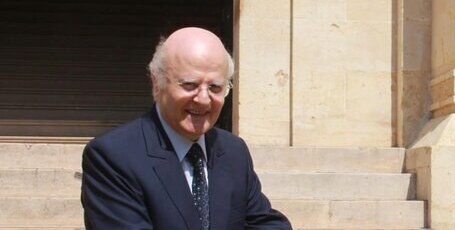BEIRUT (AP) — Lebanon’s former army chief told the lead investigator of last year’s massive Beirut port blast on Thursday that he had recommended, years before the explosion, that tons of seized ammonium nitrate stored there be sold privately or sent back to importers. The military had no use for the volatile chemical, testified Jean Kahwaji, who was army chief until 2017. Kahwaji was summoned for questioning as a witness six months after the probe began, the first army official and the most senior security official to testify in the probe. He told the lead investigator that the customs department had asked the army in late 2015 if it was interested in the stored fertilizer, which could also be used as an explosive. The army, after carrying out tests, said it had no use for the ammonium nitrate because it was a large amount and “has limited use and because it dissolves with time, it constitutes a danger if stored for a long time,” Kahwaji said.
Kahwaji said the army had no room to store it and no ability to get rid of it. He added the army then asked the customs authority to sell it to a private explosive company in Lebanon or to re-export to the country of origin at the expense of the importers. According to a local media investigation, the importers had carried out their own tests of the nearly 3,000 tons of ammonium nitrate, months after it was stored at the port, and then dropped any claims to the shipment. The chemicals ended up staying in the warehouse for six years before detonating. What sparked the explosion remains unknown. The volatile fertilizer ignited last Aug. 4, causing one of the largest non-nuclear explosion in history, disfiguring Beirut and killing 211 people. More than 6,000 were injured in the explosion.










